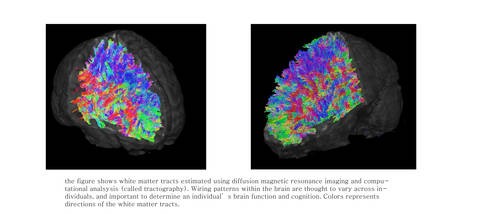Author Interviews, Endocrinology, OBGYNE, Smoking / 24.10.2018
Maternal Smoking Linked to Early Puberty in Offspring
MedicalResearch.com Interview with:
 Nis Brix M.D., PhD Student
Department of Public Health
Department of Epidemiology
Aarhus University Hospital
MedicalResearch.com: What is the background for this study? What are the main findings?
Response: Several studies have indicated a secular trend towards earlier puberty. This is a potential concern as early puberty has been linked to an increased risk of a number of diseases, such as obesity, diabetes, cardiovascular diseases and certain types of cancer. For this reason, our research team are interested in identifying potential modifiable causes of early puberty.
Smoking during pregnancy may be such a modifiable cause of early puberty in the children. Former studies have already linked smoking during pregnancy to earlier age at the daughters’ first menstrual period, a relatively late marker of pubertal development, but other markers of puberty are less studied, especially in the sons.
We studied 15,819 sons and daughters. The mothers gave detailed information on smoking during their pregnancies, and the children gave information on a number of pubertal milestones half-yearly from the age of 11 years. The milestones for the sons were age at voice break, first ejaculation of semen, pubic hair and testicular growth, armpit hair growth and onset of acne. For the daughters the milestones were age at their first menstrual period, pubic hair growth, breast development, armpit hair growth and onset of acne.
Our results suggested that the more cigarettes the mother smoked during her pregnancy the earlier her children, both sons and daughters, went through puberty. If the mother smoked more than ten cigarettes a day during pregnancy, the children appeared to go through puberty, on average, three to six months earlier than the children of non-smoking mothers. (more…)
Nis Brix M.D., PhD Student
Department of Public Health
Department of Epidemiology
Aarhus University Hospital
MedicalResearch.com: What is the background for this study? What are the main findings?
Response: Several studies have indicated a secular trend towards earlier puberty. This is a potential concern as early puberty has been linked to an increased risk of a number of diseases, such as obesity, diabetes, cardiovascular diseases and certain types of cancer. For this reason, our research team are interested in identifying potential modifiable causes of early puberty.
Smoking during pregnancy may be such a modifiable cause of early puberty in the children. Former studies have already linked smoking during pregnancy to earlier age at the daughters’ first menstrual period, a relatively late marker of pubertal development, but other markers of puberty are less studied, especially in the sons.
We studied 15,819 sons and daughters. The mothers gave detailed information on smoking during their pregnancies, and the children gave information on a number of pubertal milestones half-yearly from the age of 11 years. The milestones for the sons were age at voice break, first ejaculation of semen, pubic hair and testicular growth, armpit hair growth and onset of acne. For the daughters the milestones were age at their first menstrual period, pubic hair growth, breast development, armpit hair growth and onset of acne.
Our results suggested that the more cigarettes the mother smoked during her pregnancy the earlier her children, both sons and daughters, went through puberty. If the mother smoked more than ten cigarettes a day during pregnancy, the children appeared to go through puberty, on average, three to six months earlier than the children of non-smoking mothers. (more…)
 Nis Brix M.D., PhD Student
Department of Public Health
Department of Epidemiology
Aarhus University Hospital
MedicalResearch.com: What is the background for this study? What are the main findings?
Response: Several studies have indicated a secular trend towards earlier puberty. This is a potential concern as early puberty has been linked to an increased risk of a number of diseases, such as obesity, diabetes, cardiovascular diseases and certain types of cancer. For this reason, our research team are interested in identifying potential modifiable causes of early puberty.
Smoking during pregnancy may be such a modifiable cause of early puberty in the children. Former studies have already linked smoking during pregnancy to earlier age at the daughters’ first menstrual period, a relatively late marker of pubertal development, but other markers of puberty are less studied, especially in the sons.
We studied 15,819 sons and daughters. The mothers gave detailed information on smoking during their pregnancies, and the children gave information on a number of pubertal milestones half-yearly from the age of 11 years. The milestones for the sons were age at voice break, first ejaculation of semen, pubic hair and testicular growth, armpit hair growth and onset of acne. For the daughters the milestones were age at their first menstrual period, pubic hair growth, breast development, armpit hair growth and onset of acne.
Our results suggested that the more cigarettes the mother smoked during her pregnancy the earlier her children, both sons and daughters, went through puberty. If the mother smoked more than ten cigarettes a day during pregnancy, the children appeared to go through puberty, on average, three to six months earlier than the children of non-smoking mothers. (more…)
Nis Brix M.D., PhD Student
Department of Public Health
Department of Epidemiology
Aarhus University Hospital
MedicalResearch.com: What is the background for this study? What are the main findings?
Response: Several studies have indicated a secular trend towards earlier puberty. This is a potential concern as early puberty has been linked to an increased risk of a number of diseases, such as obesity, diabetes, cardiovascular diseases and certain types of cancer. For this reason, our research team are interested in identifying potential modifiable causes of early puberty.
Smoking during pregnancy may be such a modifiable cause of early puberty in the children. Former studies have already linked smoking during pregnancy to earlier age at the daughters’ first menstrual period, a relatively late marker of pubertal development, but other markers of puberty are less studied, especially in the sons.
We studied 15,819 sons and daughters. The mothers gave detailed information on smoking during their pregnancies, and the children gave information on a number of pubertal milestones half-yearly from the age of 11 years. The milestones for the sons were age at voice break, first ejaculation of semen, pubic hair and testicular growth, armpit hair growth and onset of acne. For the daughters the milestones were age at their first menstrual period, pubic hair growth, breast development, armpit hair growth and onset of acne.
Our results suggested that the more cigarettes the mother smoked during her pregnancy the earlier her children, both sons and daughters, went through puberty. If the mother smoked more than ten cigarettes a day during pregnancy, the children appeared to go through puberty, on average, three to six months earlier than the children of non-smoking mothers. (more…)









 Ali Khashan, PhD
Senior Lecturer in Epidemiology
School of Public Health & INFANT Centre
University College Cork
Cork, Ireland
MedicalResearch.com: What is the background for this study? What are the main findings?
Response: There is some evidence to suggest an increased likelihood of neurodevelopmental disorders in relation to hypertensive disorders in pregnancy, however consensus is lacking. Considering hypertensive disorders in pregnancy are among the most common prenatal complication, we decided to synthesise the published literature on this topic by conducting a comprehensive systematic review and meta-analysis.
Our main findings suggest that hypertensive disorders in pregnancy are associated with about 30% increase in the likelihood of autism spectrum disorders (ASD) and ADHD in the offspring, compared to offspring not exposed to hypertensive disorders in pregnancy.
Ali Khashan, PhD
Senior Lecturer in Epidemiology
School of Public Health & INFANT Centre
University College Cork
Cork, Ireland
MedicalResearch.com: What is the background for this study? What are the main findings?
Response: There is some evidence to suggest an increased likelihood of neurodevelopmental disorders in relation to hypertensive disorders in pregnancy, however consensus is lacking. Considering hypertensive disorders in pregnancy are among the most common prenatal complication, we decided to synthesise the published literature on this topic by conducting a comprehensive systematic review and meta-analysis.
Our main findings suggest that hypertensive disorders in pregnancy are associated with about 30% increase in the likelihood of autism spectrum disorders (ASD) and ADHD in the offspring, compared to offspring not exposed to hypertensive disorders in pregnancy. 






